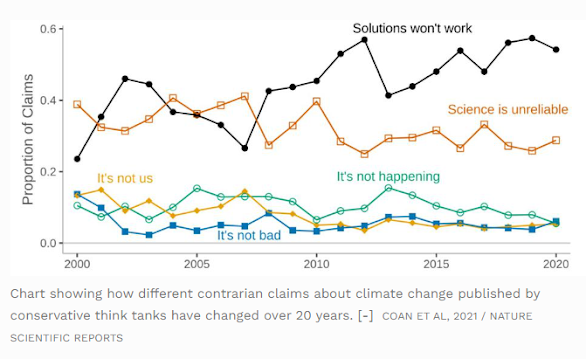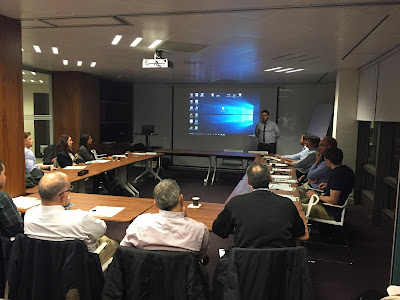There are a number of individuals who have been identified as prominent climate change skeptics in the scientific community. Some of the more well-known names include:
- Judith Curry is a retired American climatologist who was a professor at Georgia Institute of Technology. She has been known for her skeptical views on certain aspects of climate change, particularly the level of certainty surrounding the causes and potential impacts of global warming.
- Garth Paltridge is an Australian atmospheric physicist and emeritus professor at the University of Tasmania. He has been critical of some of the more extreme projections of future climate change, but agrees that human activity is causing warming.
- John Christy and Roy Spencer are both climatologists at the University of Alabama in Huntsville. They have been known for their work on satellite measurements of global temperature trends, which they argue do not support the idea that the Earth is experiencing such a rapid warming.
- Freeman Dyson is a British-American theoretical physicist, mathematician and statistician, who is known for his skepticism on the catastrophic effects of climate change. He argues that there are many doubts on the accuracy of computer models.
- Bjørn Lomborg is a Danish statistician and political scientist who is the director of the Copenhagen Consensus Center. He is known for his skeptical views on the potential impacts of climate change, arguing that the costs of reducing emissions would outweigh the benefits.
It is difficult to find a lot of active climate researchers with a strong contrarian attitude. Some of the most vociferous climate change skeptics include politicians and journalists linked to populist think tanks or the FUD agenda of fossil fuel and mining companies. Not all climate contrarians are linked to lobbies or think tanks, but some of them have been known to receive funding or support from these organizations. Fossil fuel companies, such as ExxonMobil, have been criticized for funding organizations and researchers that promote climate change skepticism in order to delay policy action on climate change. The Cato Institute, a libertarian think tank, has also been criticized for its promotion of climate change skepticism and its opposition to government regulations on greenhouse gas emissions.
Last but note least, it is important to note that the scientific community that is active overwhelmingly agrees that climate change is real and is caused by human activity. The vast majority of peer-reviewed scientific studies support the idea that climate change is happening now and was caused as a result of our greenhouse gases.
 In collaboration with Dr. Marco Pais Neves dos Santos, we explored the vision of newly qualified Portuguese builders regarding the issue of sustainability, especially in the realm of green construction. Our mission was to bridge a knowledge gap in the field and contribute to the rich tapestry of research in architecture and engineering.
In collaboration with Dr. Marco Pais Neves dos Santos, we explored the vision of newly qualified Portuguese builders regarding the issue of sustainability, especially in the realm of green construction. Our mission was to bridge a knowledge gap in the field and contribute to the rich tapestry of research in architecture and engineering.

